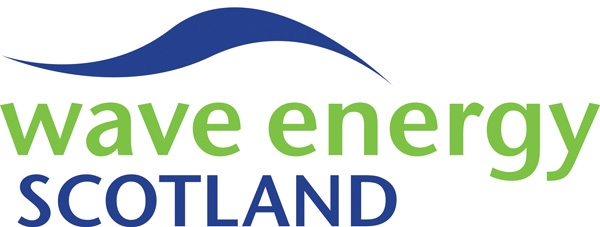Today Wave Energy Scotland (WES) is awarding almost £1m to fund the development of Advanced Control Systems technology for wave energy devices.
This technology aims to significantly reduce the cost of generating electricity from wave energy devices by increasing the amount of energy that they can capture.
The two projects selected for this stage of development will see control systems technology demonstrated in model wave devices in Scottish wave tanks such as the FloWave facility in Edinburgh.
The Control System programme is a key element of WES’ portfolio of work that develops components, sub-systems and wave energy devices. The results and learning from the multitude of WES projects will culminate in the testing of two wave energy devices at sea in Orkney next year.
This latest award brings the total invested by WES in wave energy projects to £39.6m. Since 2014 the organisation has also supported the development of the best technologies for wave devices, power take-off technology and structural materials.
Tim Hurst, Managing Director of WES said: “I’m delighted to see these projects going into stage three to conduct a physical demonstration of their advanced control system concepts. Both offer promising solutions to managing the efficiency and safety of wave energy converters. I look forward to their completion next year. ”
PROJECT SUMMARIES
Both projects are designed to enhance performance and improve the economics of a wave energy converter. In alphabetical order:
Lead Contractor: MaxSim Ltd
Project Title: Cost of Energy Optimised by Reinforced Learning (CEORL).
Project Summary: The goal of the CEORL project is to use reinforcement learning (RL) to learn good control policies for several classes of wave energy converters (WECs). The policy will be learnt in simulations of a WEC, and then transferred to a real WEC where further learning can occur. Control policies will be specific to the class of WEC, but the RL algorithms that learn them will not.
Cost: £475,000 (ex VAT)
Subcontractors: REOptimize Systems, AquaHarmonics Inc, Wave Conundrums Consulting, University of Edinburgh, Quoceant Ltd, Caelulum Ltd, Marine Systems Modelling
Lead Contractor: Queen Mary University, London
Project title: Adaptive hierarchical model predictive control of wave energy converters.
Project Summary: The project aims to contribute a technology that allows a significant reduction in the through life installed capacity cost of wave energy converters (WECs), applicable across a wide range of WEC hull and power take-off (PTO) system designs.
Cost: £461,345 (ex VAT)
Subcontractors: Mocean Energy Ltd, University of Exeter
Related Articles
Wave Energy Scotland Unveils Wave Energy Cluster Concept Design
Wave Energy Scotland (WES) has unveiled a concept design for a multi-megawatt cluster arrangement of wave energy converter devices
Report: Future Economic Potential of Tidal Stream & Wave Energy in Scotland
This report details the size of the potential economic prize for Scotland
Henry Jeffrey wins OEE industry award
The award acknowledges individuals or organisations who have made an outstanding contribution to the ocean energy sector.
Blackfish Engineering sign strategic MoU to accelerate C-Dart Mooring System
Blackfish Engineering announce the signing of a strategic Memorandum of Understanding (MoU) with AJT Engineering.
WES announces Round 2 Direct Generation competition selections
In the second round of the Direct Generation Concept Design Competition, we have awarded a total of £400,000 to be shared between two projects.
Apollo's quick connection system successfully tested in Orkney
Apollo, a leading engineering and energy advisory consultancy, is thrilled to report the successful trial of the PALM Quick Connection System (QCS) for floating offshore renewables.
Elva Bannon awarded 2024 Top 50 Women in Engineering Award (WE50)
Wave Energy Scotland's Research and Engineering Manager, Elva Bannon, has been selected as one of the Top 50 Women in Engineering (WE50).
Quoceant's Quick Connection System completes next step to technology certification
Lloyd’s Register awards Quoceant an IECRE Feasibility Statement for the Q-Connect system.
Blackfish Engineering win accelerator challenge with WES-funded technology
Blackfish Engineering Wins prestigious NOW Accelerator Challenge with Innovative Mooring Quick-Connector Concept
Direct generation competition round one results
Round one of Direct Generation Concept Design Competition draws to a close.
2023 UK Ocean Energy Review report published
This report provides a concise summary of the UK’s evolving national strategy.

